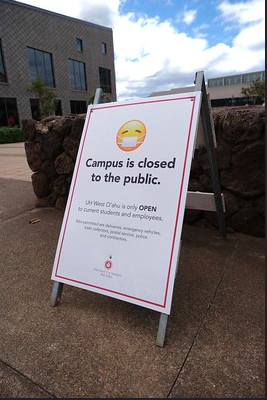Letter: Second Thoughts On Vanderbilt’s Strict COVID-19 Policies

Photo: flckr.com
After including a copy Vanderbilt University’s strict disciplinary policies for enforcing student compliance with COVID-19 safety guidelines in a letter to the Indy last week, we heard from our daughter, who is a Vanderbilt graduate student. She strongly opposes those guidelines, and she makes good arguments.
One of her concerns is that Vanderbilt’s new sanctions are damaging to students’ mental health, especially that of low income students or students of color, queer and trans students, or anyone else who has been unjustly targeted by discrimination, discipline, and law enforcement. Now some students are starting college while suffering anxiety about the virus and the risk that their loved ones will get sick. Others have left home for college in part to escape from dysfunctional or abusive home situations. Fear of getting suspended or expelled under threatening sanctions adds another layer of anxiety. This perspective from our daughter was new to me, and I take it seriously.
Another concern is that we all know that young people are prone to engage in fun-though-risky behavior, and it is unrealistic to imagine they won’t continue to do that during a pandemic. Moreover, it is not as though the presence of students living off-campus is the result of inexorable laws of nature. Had UMass not pursued plans for on-campus learning, many fewer students would have returned to the area. Personally, I was dumbfounded when Chancellor Subbaswamy announced two weeks ago that: “In the interest of public health, we also strongly urge our off-campus students whose coursework is remote to refrain from returning to the Amherst area for the fall semester.” The intent was reasonable, but the timing was not. Absent any acknowledgement that these off-campus students had already signed leases for rental housing, the Chancellor’s entreaty can only be regarded as magical thinking. The most vigorous argument that I have seen against shaming or sanctioning students for violating Covid-19 protocols appeared recently in the Atlantic. However, many of those arguments do not reflect the situation in our area, where thousands of students will be living off campus and where the university is not positioned to test all of those students 2 -3 times a week, contact trace with thoroughness, organize an array of alternative safe-socializing opportunities, etc.
At this point, my conclusion is that:
- The issue is complex, and people with more expertise than I have are working on it.
- I can’t think of any way to significantly reduce the number of students living off-campus that wouldn’t include implementing legal or financial means to release those students from their leases, so that those who wish could return to their home communities. Not an easy thing to pull off, I know. I can think of ways to do it in theory, but politically they would be a heavy lift. (This is not succumbing to NIMBY thinking. Young people pose a greater risk of spreading COVID-19 when they are living away from home in college communities, where the opportunities and temptations for adult-unsupervised gatherings are many.)
- There is unfairness in sanctioning irresponsible student behavior when it is significantly the consequence of flawed decisions made by adults in authority who should have known better. I am especially concerned if sanctions would add to students’ burden of anxiety, particularly students already subject to social inequity of various kinds. It is also not clear how effective various kinds of sanctions would be. If there are other equally effective ways to protect public health in our area, then I’m all in for that. That said, if – after every other avenue has been exhausted – some stiffer sanctions would save lives, then reluctantly I incline toward them, even knowing that they won’t be entirely fair or effective. Minimizing the unfairness would be crucial.
Dick Sclove
Richard Sclove is a resident of Amherst.

1 thought on “Letter: Second Thoughts On Vanderbilt’s Strict COVID-19 Policies”